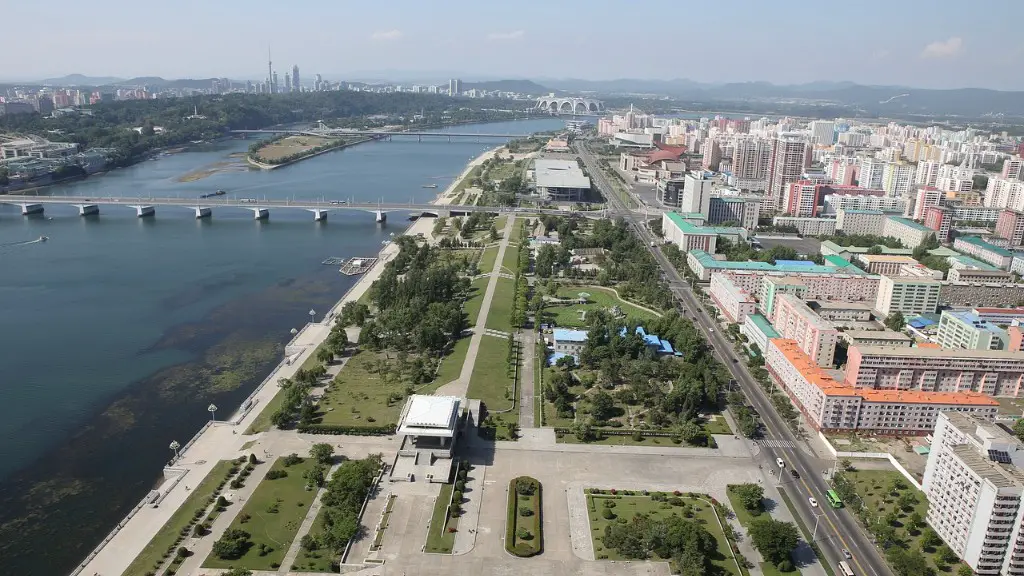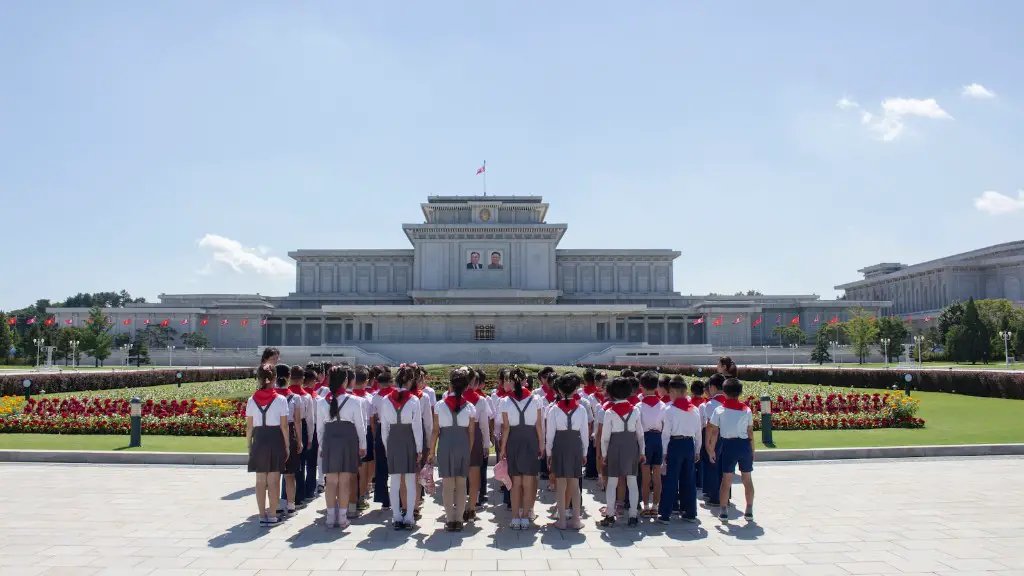What Is North Korea’s Economic System?
North Korea is a closed-off economy that is estimated to be worth just over $40 billion USD and is notoriously difficult to access. All economic activities in the country are tightly controlled by the government and there is a lack of reliable, publicly available data which has impacted the world’s understanding of the country’s economic structure and performance. While an outside perspective is limited, there are various theories about North Korea’s economic system and whether it is a command or market economy.
Command Economy Vs Market Economy
A command economy is one which is planned by a central governing authority and has sharp restrictions on people’s freedom to engage in independent economic activities. The goal of a command economy is to establish economic equality, although it often means sacrificing economic growth and efficiency in exchange. A market economy, on the other hand, is an economy where individuals and companies engage in the buying and selling of goods and services between one another, with prices determined by the forces of supply and demand and a limited amount of government regulation.
North Korea’s Economy Explained
North Korea’s economy is unique due to its mix of modern and traditional economic systems. Its economic structure is based largely on the autarky ideology of ‘Juche’ which emphasizes self-sufficiency and economic autarky from the outside world. North Korea’s economic system is largely a command economy, one in which decisions related to funding and resources are made by the government. As part of its juche policy, North Korea has a centrally planned economy and is heavily reliant on government-driven investment, with little freedom for private enterprise and a lack of incentives for people to be more efficient or productive.
North Korea also has aspects of a market economy as well. In the late 1990s, the government began to allow limited forms of private production and free markets, resulting in a hybrid system where both state and private entities have a role in the economy. As of today, there are hundreds of markets or jangmadang throughout the country, allowing citizens to buy and sell goods and services.
Analyzing North Korea’s Economic Performance
North Korea’s economy is largely dependent on sustainment from its allies, primarily China and Russia as well as international aid agencies. The UN Economic and Social Council estimates that up to 70 percent of North Korea’s GDP is given as foreign aid or credits. Despite this aid, the country still struggles with economic growth and its GDP has remained below $50 billion USD since the 1990s. In addition, North Korea is particularly prone to mismanagement and corruption which leads to an inefficient allocation of resources.
Is North Korea’s System Working?
The North Korean economy has been severely affected by COVID-19 and the effect of international sanctions. In 2020, North Korea’s economy contracted by 4.1 percent, down from a 1.4 percent growth rate in 2019. In 2021, the World Bank estimates that it could shrink by as much as 4.3 percent as the country continues to grapple with the pandemic.
Despite North Korea’s economic difficulties, its economic system has maintained widespread support among citizens. This is largely attributed to the country’s effective and authoritarian propaganda which is used to promote a sense of national solidarity and loyalty.
International Relations and North Korea’s Economy
North Korea has been proposed as an example of a planned economy, with some saying it is an example of what happens when a government is wealthy and all-powerful enough to be able to control every area of an economy and society. International relations play a major role in North Korea’s economic future as the country is heavily reliant on foreign aid, loans and investments.
In 2021, North Korea’s relations with the international community were previously at an all-time low, with North Korea withdrawing from negotiations with the US over its nuclear weapons. However, there has recently been a thawing in relations as North Korea reengages with the US over the possibility of denuclearization. The US remains the most powerful nation in dictating North Korea’s economic future, and is likely to be a major factor in determining North Korea’s economic trajectory.
The Future of Economic Reforms in North Korea
Major economic reforms are unlikely to be seen in the near future due to the political regime currently in power in North Korea. Despite international efforts to encourage reform, North Korea has not made any meaningful progress in economic liberalization. The nuclear weapons crisis has overshadowed economic developments, while economic reforms have taken a back seat.
In the long-term, it is likely that North Korea will continue to strengthen its economic system. The future direction of the country’s economic policies and reforms largely depends on its ongoing discussions with the US and other nations, as well as the willingness of the government to open up its economy to the world.
What Are The Risks of Reforming North Korea’s Economy?
There has been much debate over the potential risks of reforming the North Korean economy since the country is so heavily dependent on international aid. The risk of a too-sudden reform is that the North Korean economy could face a disruption from market forces that would result in high levels of inflation.
In addition, there is a risk that the North Korean regime could use economic reform as a way to strengthen its own power, rather than making reforms in the interest of citizens. A too-quick and too-powerful transformation to a market economy could widen the wealth gap between citizens and fuel further corruption.
What is The Outlook for North Korea’s Economy?
It is difficult to predict the future of North Korea’s economy. Currently, North Korea is in a precarious position with no clear path out of its current economic struggles. North Korea is going to need positive developments in its international relations in order to gain access to the resources and investment it needs to modernize its economy.
In the short-term, it is likely that North Korea will continue to stagnate economically due to the pandemic and lack of international aid. However, if North Korea’s leaders are willing to make meaningful reforms, the country has potential to improve its economic situation in the long-term.


